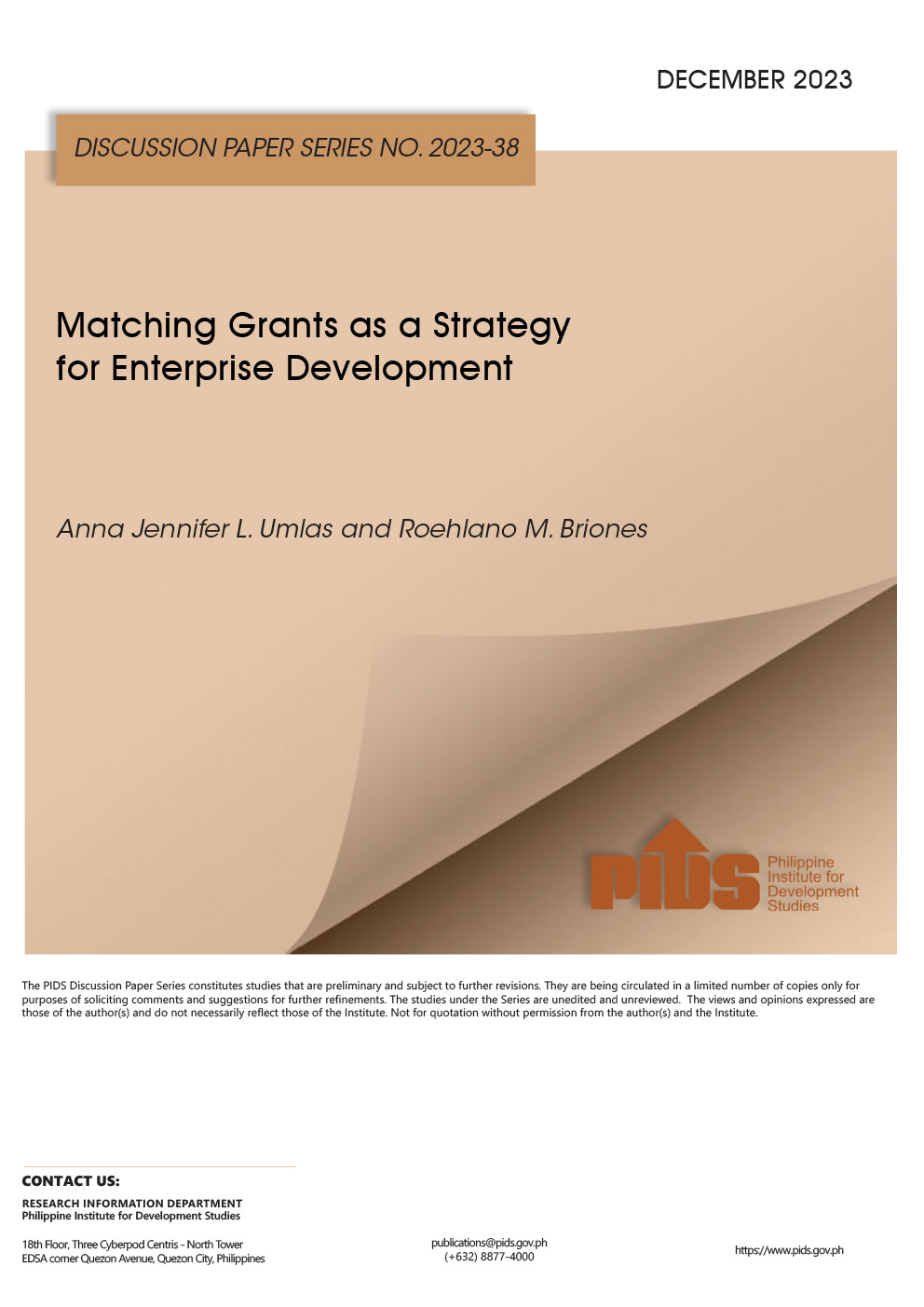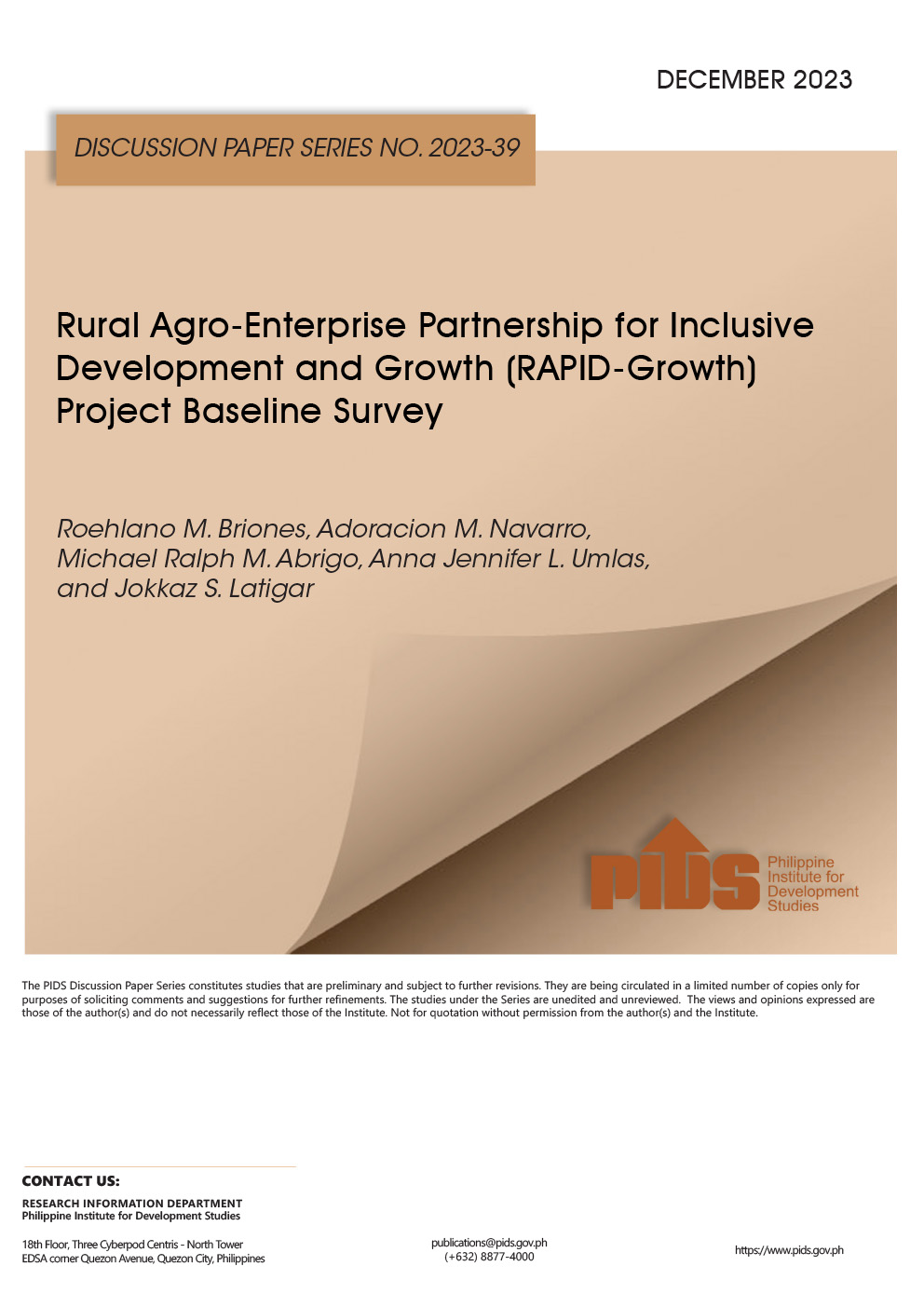MANILA, Philippines — Support from the national government for irrigation development will be crucial even with the upcoming devolution of functions to local government units (LGUs), given limitations on local governments’ capability, according to state think tank Philippine Institute for Development Studies (PIDS).
“I think there is still a big scope for national agencies to at least support the irrigation development and do some kind of transition with the LGUs,” PIDS senior research fellow Roehlano Briones said in a webinar.
Following the Supreme Court’s ruling on the Mandanas-Garcia petition, LGUs are set to get a greater amount of resources in implementing devolved functions covering the delivery of basic services.
While the Mandanas-Garcia ruling is expected to increase the internal revenue allotment or share of LGUs from national internal revenue taxes, Briones said he is not optimistic this would create a serious dent in irrigation development.
In coming up with the book focused on evaluating the government’s irrigation development program that came before the Mandanas ruling, he said it was observed that there is lack of resources and lack of prioritization on the part of LGUs for the small irrigation systems that were placed under their mandate.
“So, it’s still mostly dependent on investments coming from the national agency,” he said.
For his part, National Irrigation Administration (NIA) deputy administrator C’zar Sulaik said the agency has come up and submitted to the Department of Budget and Management a devolution plan, which includes providing capacity building activities to LGUs this year to strengthen and capacitate them to manage the communal irrigation systems.
He also said the agency has started consultations with LGUs on the devolution of functions.
“There is already some feedback coming from the regional offices of NIA that there are some LGUs hesitant to accept the transfer of communal irrigation projects to their side because of the situation that the capability of LGUs based on the resources is not yet ready,” he said.
He said there are many disciplines that need to be considered in implementing an irrigation project.
The webinar was held to present highlights of the PIDS book “Revitalizing Philippine Irrigation: A Systems and Governance Assessment for the 21st Century” which was recently awarded the National Academy of Science and Technology’s 2022 Outstanding Book Award.
While the book was released last year, Briones said its recommendations remain relevant especially as the government has made agriculture a top priority and in light of the five fs crises such as food, feeds, fertilizers, fuel and finance.
Among the recommendations of the book is to recognize the lack of human resources in irrigation project implementation and to take the necessary steps to address it.
“The new administration is looking at rightsizing and that is the correct term to use. It is not just taking people out, but sometimes putting new people in with the right competencies because there is not enough current personnel right now to fill up the need that is being created by the expansion of government programs,” Briones said.
He said there is also a need to improve the human resource capacity of irrigation users, especially if the aim is to encourage participatory management of irrigation systems.
In addition, he said there should be better coordination between the irrigators’ associations with NIA and Department of Agriculture, as well as among the various institutions engaged in governing water resources.
He also said sufficient funding should be allocated for operations and maintenance of irrigation systems.












